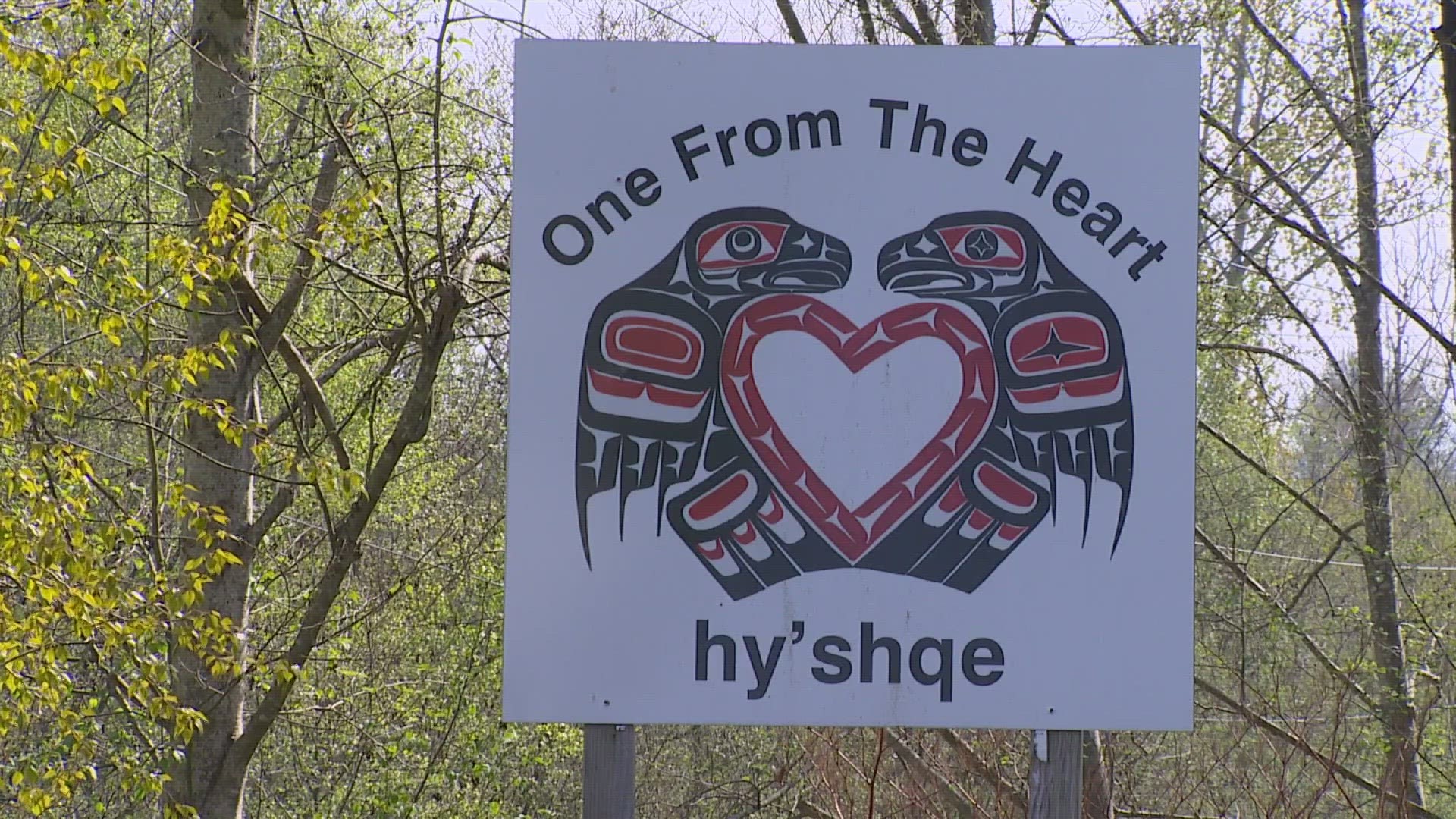LUMMI NATION, Wash. — On the Lummi Indian reservation, a staggering 80% of the ER visits are from drug overdoses -- mostly fentanyl -- killing people and perpetuating generational trauma.
Pleas for help are posted all over the reservation, begging people to stay away from drugs or seek treatment.
One reads, "Dear Lord, age 12. I have a fentanyl habit. I feel so alone. It's hard to breathe. I feel I might die. Save me, please."
The Lummi, and so many other tribes, are fighting a daunting battle against the incredibly toxic drug fentanyl and other opioids.
"It's devastating. It's heartbreaking," says Tracy Deardorff.
Her family is in the middle of the chemical chaos right now.
Tracy says her husband and two sons are "in full-blown fentanyl addiction."
One of those sons is the father of Alaysha Cultee-Brady's little girl.
"It's devastating having to explain to my daughter why her dad doesn't live with us anymore, why he can't come to the basketball game or the school event," she says. "It's tragic."
The opioid epidemic and fentanyl crisis have hit Indian County especially hard.
According to the CDC, Native Americans have the second-highest opioid overdose rate in the country and the second-highest death rate.
This week, the Lummi are hosting a statewide fentanyl and opioid summit designed to encourage collaboration and the sharing of strategies among tribes and state officials.
The tribes are hoping to hold a similar summit with federal officials in the near future.
Valerie Cultee is a crisis outreach specialist with the Lummi.
She says tribes are looking for answers that can't come quickly enough.
"We hope that we can come together, that we can find that commonality that's going to help our people, and all people," Cultee said.
The Lummi are taking one big step in the right direction.
Last month the tribe opened a new, seven-bed "stabilization and withdrawal recovery center" on the reservation.
It's a sign of hope that the cycle of addiction can be broken before it spreads to yet another generation -- like Alaysha's little girl.
"I'm fortunate that I have not experienced addiction, myself," Alaysha says, "but I just hope and pray that my daughter will see how it has affected her father and will not want to follow in those footsteps."

